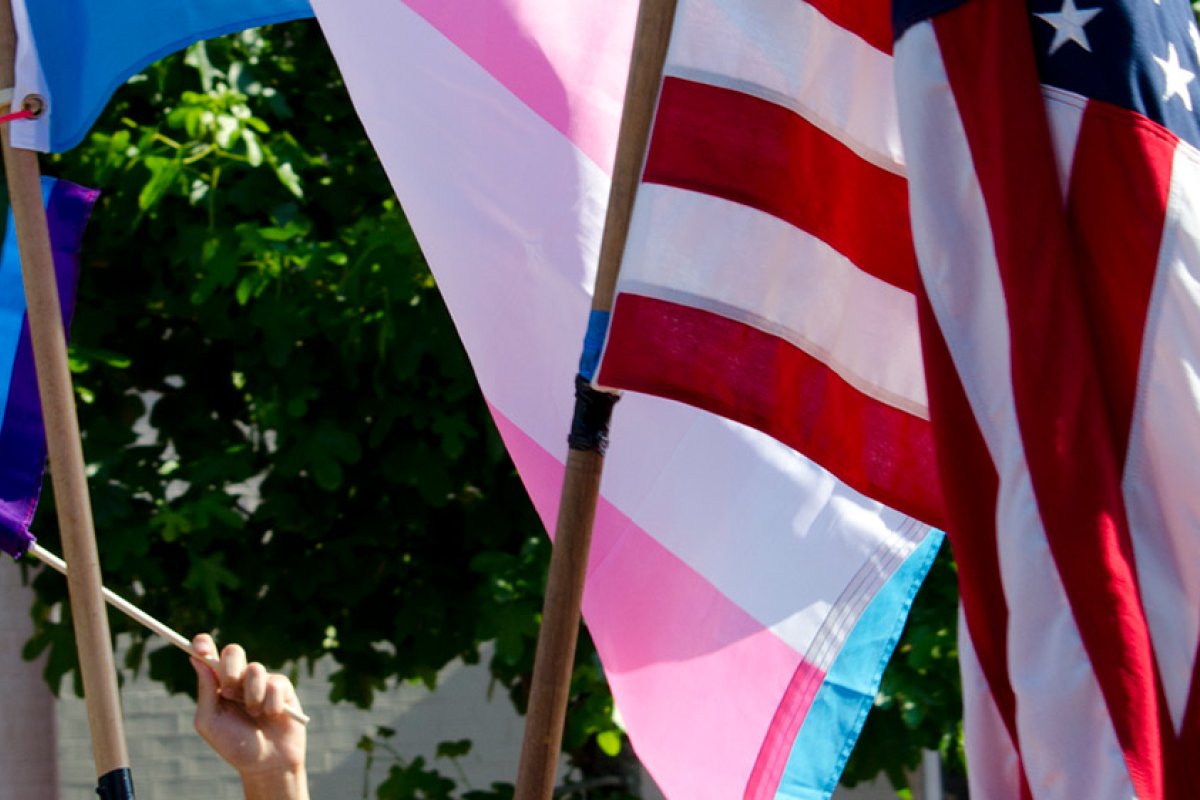
Sightings and Sorrows of Religion
While religion should motivate efforts to alleviate hatred and dehumanization, it often finds itself wrapped up in these social evils.
Adelle M. Banks, writing for Religious News Service, noted that "More than 200 interfaith leaders have requested that President Joe Biden establish a commission to study reparations for African Americans by signing an executive order by the newly recognized federal holiday Juneteenth." The holiday celebrates the effective end of slavery issued by Major General Granger in Texas on June 19, 1865, two years after the official declaration. It recognizes a turning point in the nation's history, commemorates African American freedom and achievement, and also signals the immense work to be done in furthering the freedom and equality of all. At issue are not just debates about reparations or how to teach honestly the history of the nation, but how to let the claim of truthfulness not be stymied by the illusions we spin about our righteousness.
At issue for Juneteenth is also the tenacious power of hatred and dehumanization in human existence. Yet, paradoxically through these sorrows can be faintly heard a higher claim of truthfulness on people's lives. There is a danger of taking holidays that celebrate past achievements and using them to obscure harsh historical and contemporary realities. While commemorations should be a spur to truthful action, they often serve to conceal injustices. In much the same way, while religion should motivate efforts to alleviate hatred and dehumanization, it often finds itself wrapped up in these social evils.
§1
Hatred and dehumanization within religions are as old as religion itself—and politics, too. Think of the biblical story in Genesis 4 where Cain murders Abel because his grain offering to God was not as pleasing to the deity as the fat portions of Abel's flock. Throughout world history political rulers have persecuted religions in the pursuit and consolidation of power. Summarizing the 2022 International Religious Freedom Report, ambassador Rashad Hussain said, “Far too many governments continue to freely target faith community members within their borders.” Ms. Banks goes on to note that a second finding of the report was the "increase of government restrictions on access to holy sites and places of worship.” 1
Of course, the efficacy of Human Rights declarations as well as international accords to stop or at least ameliorate conflict including religious conflict is endlessly debated. Whatever one thinks about the so-called secularization of the world, sadly, religious violence continues unabated. Just recall the massacres at a Pittsburgh synagogue or a historic Black church in Charleston. If thinkers like Franklin I. Gamwell are correct that religious freedom is basic to democratic commitment, then democracy itself is demeaned by religious conflict and persecution.2 Religiously motivated violence impacts the political world no less than governments targeting religions as noted in the 2022 International Religious Freedom Report.
§2
Now let's consider a second sighting of the sorrow of religion. Reporting for The New York Times, Elizabeth Dias and Ruth Graham noted that the Southern Baptist Convention, fearful of "a dangerous liberal drift," cut ties with congregations pastored by women.3 Astonishingly, one of the churches was Saddleback Church, where the well-known pastor Rick Warren appointed a married couple, female and male pastors, as his successors.4 The Times story focused on Linda Barnes Popham who served Fern Creek Baptist Church in Louisville, Kentucky for some thirty years before the SBC voted to end its affiliation with her church.
However, the worry about a "liberal drift" is a bit confusing if it is meant to signal a Christian stance over against liberal society. How is that so?
CNN recently reported that the UN has found that almost nine in ten people around the globe have a basic bias against women. "Half of people globally," it notes, "still believe men make better political leaders than women; more than 40% believe men make better business executives than women; and 25% believe it is justified for a man to beat his wife, the United Nations Development Programme report released Monday found, reflecting the latest data from the World Values Survey." 5
The horrific alliance between religion and culture continues to thwart and endanger women's lives. The global women's movement as well as laws forbidding unwarranted harm to women no doubt have done some good, but the UN findings are profoundly disturbing. They show, oddly enough, that the SBC is not as countercultural as it thinks, since attacks on women's dignity are seemingly the global norm.
§3
What are we to make of these sightings and sorrow of religions? Two things, I judge. The first is that the sorrows of religions we have noted should be called what, in fact, they are, and that is hypocrisy. Religious hypocrisy too often hovers about the lives of women and many other people. Declarations by Christians that all are born in the image of God, or, with St. Paul, that in Christ there is neither male nor female (Galatians 3:28) hardly match the treatment of women in too many churches, nor, for that matter, within global social realities. Again, people must be careful not to allow national holidays or special months of recognition to veil the truth that at least this nation must struggle to live up to its ideals. The same must be said of religions insofar as they can, and often do, become the veils covering human hypocrisy. Things must be named for what they are despite the myriad forms of resistance in doing so at work within human communities and the human heart.
The second thing to make of these sorrows of religions is a paradox. The fact that people, religious communities, and even governments can identify their hypocrisy about respecting human dignity discloses that they are aware that there is a claim to truthfulness in human life. From within the deceit and duplicity of the religions we can hear the small still voice of the claim of truthfulness on human life. To articulate, interpret, and understand that all too faint claim—its meaning and source—is a profoundly difficult and yet important and necessary task. And the claim itself, one can suggest, is a sighting of goodness amid religion's sorrows. When it emboldens action, that sighting discloses and resists the tenacious power of hatred and dehumanization in human existence.
Thankfully, many people are so emboldened. Their courage is the true celebration of Juneteenth, Pride Month, Women's History Month, Black History Month, and rightly so. Whenever human dignity rather than hypocrisy moves people's lives, the tissue of social deceit is torn and goodness is embraced. The arc of the moral universe, as Martin Luther King Jr. put it, is then bent, albeit slowly, towards justice.
1https://religionnews.com/2023/05/16/for-25th-year-state-department-reports-on-threats-triumphs-in-religious-freedom/
2 Franklin I. Gamwell, The Meaning of Religious Freedom: Modern Politics and the Democratic Resolution (SUNY Press, 1995).
3 https://www.nytimes.com/2023/06/13/us/southern-baptist-movement-women-pastors.html
4 https://www.washingtonpost.com/dc-md-va/2023/06/11/rick-warren-saddleback-sbc/
5 https://www.cnn.com/2023/06/12/world/un-report-gender-bias-intl-scli/index.html
Image by Tim Evanson from public domain


